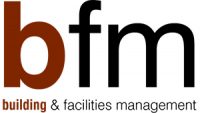Siemens supports the arts and delivers safety and sustainability at Carnegie Hall, New York

Carnegie Hall boasts a history of 125 years as a music venue and Siemens operates as their technology partner for the implementation of fire safety, electronic security and building automation, helping to make this iconic building safer, more secure and more energy efficient.
Not only does Siemens protect Carnegie Hall but the company also supports and nurtures emerging talent worldwide via the Siemens Arts Programme. It achieves this through its own rising talent competitions, such as the Siemens Opera Contest and by connecting these new artists with established cultural institutions worldwide, including Carnegie Hall New York, Palais Garnier Paris, Bayerische Staatsoper and Salzburg Festival. Ilkin Alpay came to prominence last year as the winner of the Siemens Opera Contest in Turkey and now the young soprano has appeared at Carnegie Hall.
New systems were installed as part of an infrastructure upgrade to Carnegie Hall’s Studio Towers, originally added to the famed concert hall at the end of the 19th century. A central focus of this comprehensive renovation was the installation of the new 60,000 square foot Resnick Education Wing, located on the Hall’s upper floors, as well as the refurbishment of the Hall’s backstage areas. The project created an opportunity to highlight the importance of sustainable design and provided an inspiring example of the adaptive reuse of a historic building.
“With the Studio Towers Renovation Project and creation of our new Resnick Education Wing, we aimed to build on Carnegie Hall’s amazing history, ensuring that our building continues to revitalise itself for the 21st century as a place as important to the future of music as it has been to the past,” said Clive Gillinson, Carnegie Hall’s Executive and Artistic Director. “An important component of the project has been the opportunity to upgrade our building’s infrastructure, and Carnegie Hall is more energy-efficient and environmentally-friendly for staff and visitors than ever before.”
As part of the Studio Towers renovations, Siemens supplied life safety systems and building automation; technology highlights include:
Enhanced security: the Siemens SiPass access control system addresses Carnegie Hall’s complex security needs by ensuring that only the right people have access to the right places at the right time. This is crucial, as Carnegie Hall has various access points and levels of clearance for building staff, students and performers, among others.
Fire and life safety system: Siemens’ advanced detection systems allow Carnegie Hall to ensure the safety of its occupants. If a fire is detected, the command and control station is instantly alerted and emergency control operations are engaged, including fire door closure, lift management and air handler turn-on/shut-off, among other critical functions.
Centralised control: a Siemens building automation system integrates heating, ventilation, and air conditioning controls onto one platform that can be controlled both locally by end-users and from one central location by building engineers, or remotely, if desired. It also continually analyses electricity demand and usage to manage overall building energy performance.
It was a challenge to retrofit such an iconic and historic building that had no original blueprints, with technology that would modernise its safety, security and energy efficiency systems, but as a result of these efforts, Carnegie Hall is now one of the oldest buildings to receive a LEED Silver Leadership certification.
An additional component of the overall project that helped Carnegie Hall achieve its LEED certification is a new 10,000 square foot roof terrace with reflective pavers and plantings that reduce the heat island effect and the building’s overall carbon footprint. Thanks to the Hall’s 450 original windows on its upper floors, natural light has been maximised in the building’s renovation and design, which also incorporates the use of LED bulbs and occupancy sensors.
Carnegie Hall presents a wide range of performances each season on its three stages – the renowned Stern Auditorium / Perelman Stage, intimate Weill Recital Hall, and innovative Zankel Hall – including concert series curated by acclaimed artists and composers; citywide festivals featuring collaborations with leading New York City cultural institutions; orchestral performances, chamber music, new music concerts, and recitals; and the best in jazz, world, and popular music. Complementing these performance activities, Carnegie Hall’s Weill Music Institute creates extensive music education and community programmes that are expected to serve more than a half a million people in the New York City area, nationally, and internationally next season. For larger systems that can leverage existing IT network infrastructures, integration is an important factor. It makes sense to move away from a single discipline approach to one that views security in a more holistic way. This applies not only to the integration of different security functions, but also how security and safety can be integrated into general business processes. The facilities market has moved significantly in connectivity terms, particularly with the development of open architecture. www.siemens.com/buildingtechnologies





